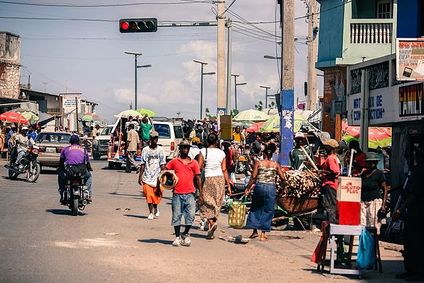|
Environmental issuesIn 1925, Haiti was lush, with 60% of its original forest covering the lands and mountainous regions. Since then, the population has cut down all but an estimated 2% of its original forest cover, and in the process has destroyed fertile farmland soils, contributing to desertification. Erosion has been severe in the mountainous areas. Most Haitian logging is done to produce charcoal, the country's chief source of fuel. The plight of Haiti's forests has attracted international attention, and has led to numerous reforestation efforts, but these have met with little success to date. In the 19th century, arable land in the size of 15 hectares was distributed to farmers. It was inherited and divided by their children. In 1971, the average farm size was less than 1.5 hectares. To survive, the landowners had to overuse the land. It became infertile within a few years. The farmers moved to clear steeper hillsides and finally become unemployed. Eventually the shortage of arable land and rising rural poverty pushed peasants from hillside subsistence farms to search for work in Port-au-Prince, where the concentration of desperate people in slums contributed to the country's tragic history of civil strife. Despite the large environmental crises, Haiti retains a very high amount of biodiversity in proportion to its small size. W Sustainability initiatives
Youth initiativesInitiatives by topicEnvironment qualitySafe and Sustainable Water for Haiti Food activismSolar cooking resources in Haiti Towards sustainable economiesHaitian Coalition to Advocate Alternative Development (PAPDA) Trees, woodland and forestDifferent from reforestation projects, Pwojè Pyebwa promoted agroforestry—the strategic mixing of crops, trees, and animals. W. Blogs: Treemobile |
News and comment2015 “Give Me Light, Give Me Life”: How Renewables Are Rekindling Hope in Haiti (Part 3), November 4 [1] Reforesting Haiti For Food & Resilience, August 18 [2] 2014 Haiti slum blooms into urban oasis, June 3 [3] See alsoInterwiki linksWikipedia: Haiti, Environment of Haiti, Environmental issues in Haiti, Deforestation in Haiti, Jean-Baptiste Chavannes
|

